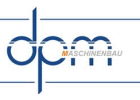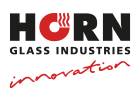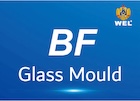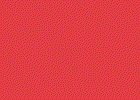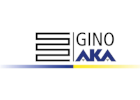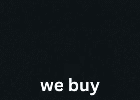Timothy Gent, Director of glass recycling company, Recresco, calls for more investment and more education to meet ambitious recycling targets.
The European glass container federation, FEVE, has announced a major programme targeting a 90% glass collection for recycling rate in the EU by 2030.
The ‘Close the Glass Loop’ programme is set to be launched in June this year and is the industry’s proactive response to increased recycling targets for glass and packaging to 75% by 2030.
The European market currently collects around 76% “bottle to bottle” recycling, however the UK falls short with a glass recycling rate reported as just 67.6% in 2017; lower than the rates for cardboard, paper and metal.
With less energy required to recycle glass than to manufacture it from raw materials, high quality glass recycling can have a positive impact in reducing emissions.
However, consumer confusion around recycling coupled with challenges in the recycling process mean despite the sustainable nature of glass, much still finds its way into general household waste and onto landfill.
Once in landfill, glass takes up valuable space and never decomposes making it crucial that it is disposed of correctly in recycling containers.
The Waste and Resource Action Programme (WRAP) research conducted in 2019 found that just one in five councils in England provides a complete recycling service with the Government accepting it will not meet the targets set for 2020.
The industry framework for greater consistency in household recycling in England was published in September 2016.
It included a vision that by 2025 recyclable packaging would be clearly labelled and there would be a common set of materials for recycling for all homes in England including paper, card, plastic bottles, plastic pots, tubs and trays, glass and metal packaging, cartons and food waste.
Despite these efforts, consumers still find recycling guidelines confusing with inconsistent and complex rules often leading to mistakes in which items can and cannot be placed in kerbside collections and deposit facilities.
A lack of understanding of the complicated process which follows glass collection is another issue with the challenges of glass recycling not often highlighted.
When glass containers are mixed with other dry recyclables including plastic, paper and cardboard, they become contaminated rendering them unsuitable for recycling into a high-quality product.
For glass to be recycled effectively, a lengthy and complicated process must be followed whereby collected glass is processed into cullet for use in new products.
Once glass is collected and sent to a glass treatment plant, it must be cleaned and sorted, ready for remelt.
This ‘middle-man’ process of separating, cleaning, colour sorting and extracting ‘foreign items’ to prepare glass for the manufacturing industry, is one that is often overlooked.
Closed loop processes recycle glass into the same high-quality product, offering the highest financial and environmental returns, and UK the market has surplus capacity to do so.
Although challenging, there is now innovative, advanced technology available that allows collected glass to be treated and recycled to the highest standard, without the need for manual labour.
Modern colour sorting machinery and PLC controlled sorting systems are available but this technology currently remains underutilised in the UK today.
A major issue in glass recycling lies in maintaining quality of glass collected through co-mingled systems but new advanced equipment enables improved recovery rates from poorer quality MRF (Materials Recovery Facility) glass.
The machinery eases the burden of reprocessing mixed glass and removing contamination from kerbside and bottle banks making the 90% recycling target easily achievable.
If local authorities and the Governments hope to reach the ambitious targets currently being set, it is critical that investment and a real commitment is made into these enhanced technologies.
In terms of recyclability, glass has the ability to deliver a truly circular economy, turning waste glass into new bottles minimising the use of virgin raw materials and benefiting the environment.
Recycling glass is one of the many ways we can help reduce pollution and waste.
The economic and environmental benefits are obvious but it is imperative that businesses and Government make a firm commitment by educating consumers and investing in the processes and technology that make this possible.





